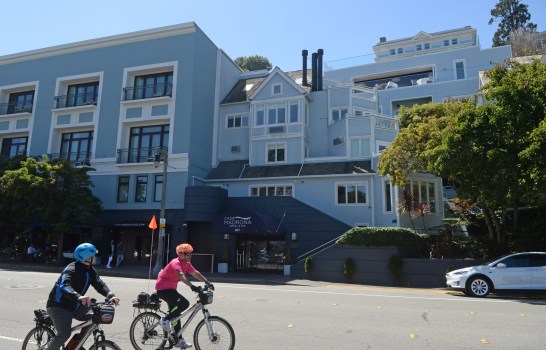Seven casino-owning Native American tribes sued dozens of California card rooms in Sacramento County on Thursday, launching a new front in one of the most costly political battles of the previous year. This was their first chance to do so since a new rule went into effect on January 1.
The millions of tax dollars that fund local services like police and road repairs may now be at risk.
According to the tribe’s lawsuit, illegal card games like pai gow poker and black jack are being offered by gambling halls located throughout California, which reduces the tribes’ gambling profits.
In the first line of their lawsuit, the tribes claimed the defendants blatantly profit from unlawful gaming.
A spokesman of the card room industry claimed in a statement that the cardrooms are fully compliant with the legislation.
According to the statement, tribal casinos’ attempt to stifle legitimate competition from California companies that pay taxes will not succeed.
If Governor Gavin Newsom had signed Senate Bill 549 in September, the lawsuit would not have been able to proceed. In order to support historically marginalized native populations, tribes claim that voters in California granted them the sole right to host the contentious table games years ago.
However, the tribes lacked the legal authority to bring a lawsuit against the state’s roughly 80 privately run gaming halls since they are sovereign governments.
The bill allowed tribes to sue card rooms beginning January 1 for a period of three months. On the first day of the new year, when California courts reopened, they filed the complaint.
Tribes are prohibited from receiving any funds or legal fees from the litigation under the measure. Judges will instead only determine whether card rooms are allowed to keep offering the contested games.
Since cardroom taxes account for almost half of certain cities’ budgets, a tribal victory in court may put funding for local services like police and firefighting at risk.
In Los Angeles County, for instance, local card rooms provide about two-thirds of the budget for the little city of Hawaiian Gardens and nearly half for the city of Commerce.
In July, San Jose City Councilmember Sergio Jimenez informed lawmakers that the city’s $30 million annual revenue from card rooms could pay for 133 firefighters or 150 police officers. According to Jimenez, funds could be at risk if the tribes win the case.
According to the card room industry, the games are legal and have all received approval from the attorney general’s office over the years.
The lawsuit follows one of the most expensive political battles of the two-year legislative session that ended last summer, in which tribes convinced lawmakers to enact SB 549.
The gaming bill was opposed by a smaller group of lawmakers who had card rooms in their districts, while a bipartisan coalition of lawmakers, many of whom had sizable tribal casinos in their districts, supported it.
It came after a failed 2022 sports betting effort with a similar clause that would have allowed the tribes to sue, which the tribes had paid millions of dollars to fund.
The Digital Democracy database shows that since January 2023, the opposition gaming interests have contributed at least $4.3 million to the 120 members of the Legislature.
Card rooms launched a significant lobbying campaign in response to SB 549’s introduction, seeing it as an existential danger. The second-highest lobbying expenditure disclosed to state regulators in 2023 was $9.1 million, which was spent by Hawaiian Gardens Casino alone. The only company that spent more was Chevron Corp., the global oil giant.
The card room industry then spent almost $3 million in the run-up to the November election in revenge against four lawmakers who were instrumental in the passing of SB 549, even though they lost the battle.
The author of the bill, Democratic Senator Josh Newman of Fullerton, was one of three politicians the card clubs targeted and who ultimately lost.
Note: Every piece of content is rigorously reviewed by our team of experienced writers and editors to ensure its accuracy. Our writers use credible sources and adhere to strict fact-checking protocols to verify all claims and data before publication. If an error is identified, we promptly correct it and strive for transparency in all updates, feel free to reach out to us via email. We appreciate your trust and support!



